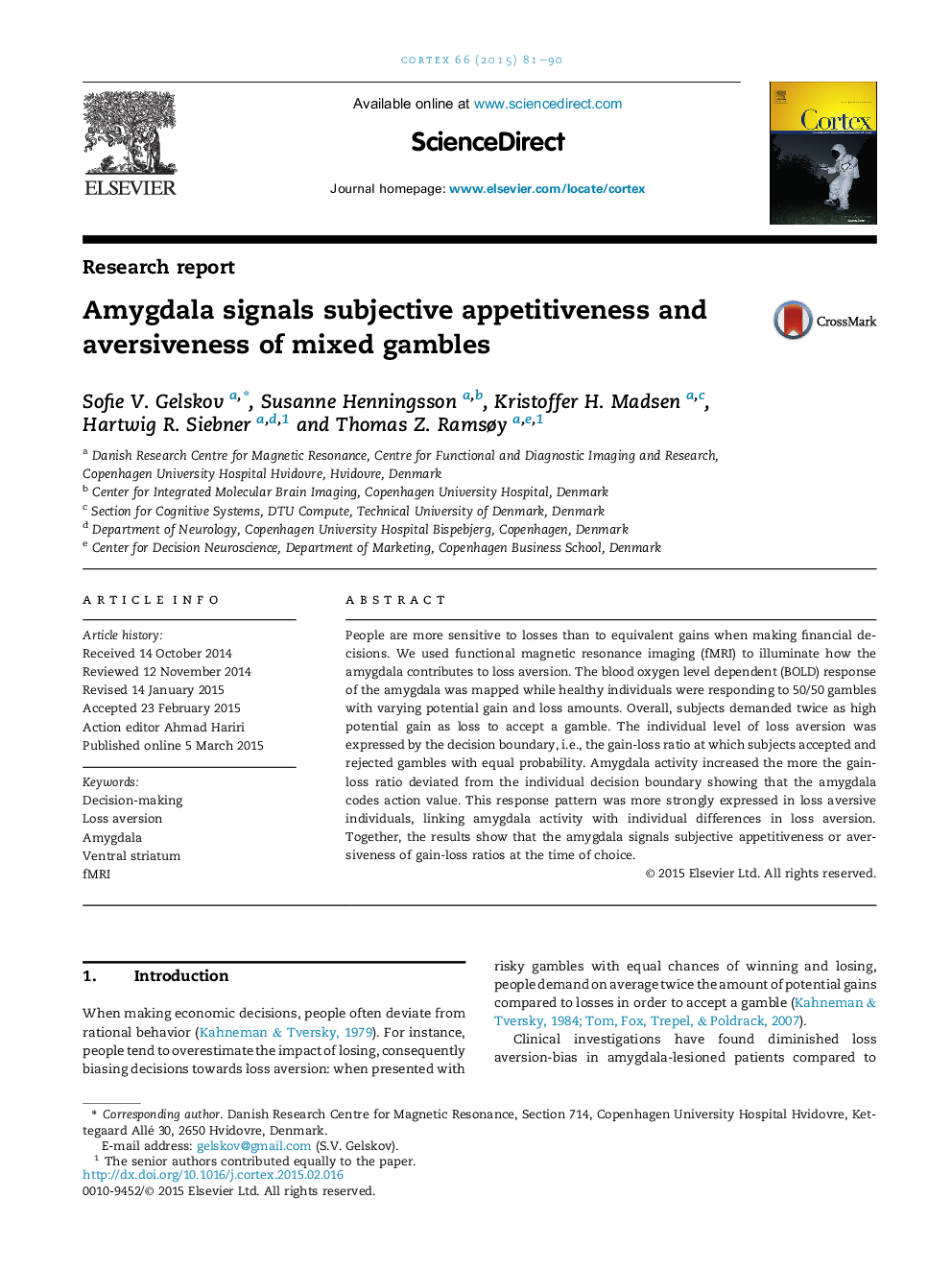| کد مقاله | کد نشریه | سال انتشار | مقاله انگلیسی | نسخه تمام متن |
|---|---|---|---|---|
| 7314634 | 1475466 | 2015 | 10 صفحه PDF | دانلود رایگان |
عنوان انگلیسی مقاله ISI
Amygdala signals subjective appetitiveness and aversiveness of mixed gambles
دانلود مقاله + سفارش ترجمه
دانلود مقاله ISI انگلیسی
رایگان برای ایرانیان
کلمات کلیدی
موضوعات مرتبط
علوم زیستی و بیوفناوری
علم عصب شناسی
علوم اعصاب رفتاری
پیش نمایش صفحه اول مقاله

چکیده انگلیسی
People are more sensitive to losses than to equivalent gains when making financial decisions. We used functional magnetic resonance imaging (fMRI) to illuminate how the amygdala contributes to loss aversion. The blood oxygen level dependent (BOLD) response of the amygdala was mapped while healthy individuals were responding to 50/50 gambles with varying potential gain and loss amounts. Overall, subjects demanded twice as high potential gain as loss to accept a gamble. The individual level of loss aversion was expressed by the decision boundary, i.e., the gain-loss ratio at which subjects accepted and rejected gambles with equal probability. Amygdala activity increased the more the gain-loss ratio deviated from the individual decision boundary showing that the amygdala codes action value. This response pattern was more strongly expressed in loss aversive individuals, linking amygdala activity with individual differences in loss aversion. Together, the results show that the amygdala signals subjective appetitiveness or aversiveness of gain-loss ratios at the time of choice.
ناشر
Database: Elsevier - ScienceDirect (ساینس دایرکت)
Journal: Cortex - Volume 66, May 2015, Pages 81-90
Journal: Cortex - Volume 66, May 2015, Pages 81-90
نویسندگان
Sofie V. Gelskov, Susanne Henningsson, Kristoffer H. Madsen, Hartwig R. Siebner, Thomas Z. Ramsøy,